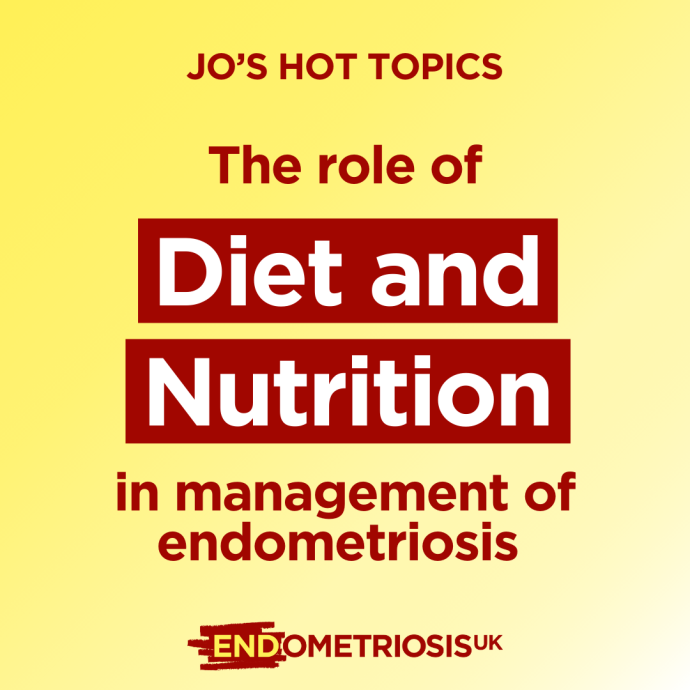Endometriosis is an inflammatory condition. We know that certain foods can create inflammation within the body, this increase in inflammation could potentially trigger or flare endometriosis symptoms. An anti-inflammatory diet can help reduce the bodies inflammation response. Anti-inflammatory foods can include fruit, vegetables, beans, chickpeas, wholegrains, nuts, seeds and olive oil with some fish and poultry. Foods which contain refined sugars, carbohydrates, unhealthy fats, diary, red and processed meats are avoided as they can create inflammation in the body.
Evidence also suggests that high consumption of gluten, red meat, alcohol and caffeine can also affect hormone regulation, specifically oestrogen production, which can trigger symptoms for those with endometriosis.
It’s important to maintain a nutritious and diverse balanced diet for overall health whilst also supporting a healthy gut microbiome. Evidence also suggest that a healthy gut microbiome is also linked to reduced inflammation.
Please be aware that drastic diets can be dangerous and lead to other health issues. It’s important to discuss any dietary plans with a health professional.
Jo's top tip: Keep a food and symptom diary, this will help you identify any food triggers in your own diet that could be flaring symptoms such as constipation and bloating - this will make pain worse. Try reducing or cutting out these foods to see if there is any improvement.


